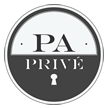Being prepared is half the battle. Let’s face it; no one likes being interviewed and the job interview process. We know that some interview questions can be tough. To offer guidance on dealing with incredibly tough questions during a job interview, we present the following outstanding responses to 15 tough interview questions.
And remember, if you’re on the look out for a job, check out our PA Privé careers page for personal assistant jobs, London PA jobs and more.
Question #1 What did you not like about your last employer?
What the employer wants to know: The interviewer has asked you to say something negative about your ex- employer.You need to turn this around so that it makes it sound like the negative is in fact a positive!
Question #2 Why Is There A Gap In Your Work History?
What the employer wants to know: You may have gaps in employment for many reasons. People lose their jobs and it’s not always easy to find a new one fast. When answering this question, be honest and list activities you ‘ve been doing during any period of unemployment. Freelance projects, volunteer work or taking care of family members all let the interviewer know that time off was spent productively.
Question #3 Why should we hire you?
What the employer wants to know: Create your answer by thinking in terms of your knowledge, ability, your experience, your energy and your skills.
Question #4 Do you want to eventually become a manager or executive?
What the employer wants to know:“I believe I have management potential, but I know that good leaders are also good followers.”
Question #5 Please give me your definition of [the position for which you are being interviewed].
What the employer wants to know: Keep your answer brief and task oriented. Think in in terms of responsibilities and accountability. Make sure that you really do understand what the position involves before you attempt an answer. If you are not sure, ask the interviewer; he or she may answer the question for you.
Question #6 What are your weaknesses?
What the employer wants to know:Concentrate on your relevant transferable skill and natural talents. Stay away from “I am too intense” or “I work too hard.”
Question #7 What is success?
What the employer wants to know: “Success is the realization of a goal that benefits both your organization and you.”
Question #8 According to your definition of success, how successful have you been so far?
What the employer wants to know: Think carefully about your answer and relate it to your career accomplishments.
Question #9 What is your greatest fear?
What the employer wants to know: Frame it: There is really only one wrong answer here that sends up a red flag: The fear of failure.
Question #10 ‘Tell me what you felt was unfair to you in your last job.’
What the employer wants to know: This is another question that aims to uncover some of your weaknesses. Where will you shift the blame? Once again, the best way to approach this is honestly, but positively.
Question #11 Give me an example of when you had to solve a problem at work, how did you do it and what was the outcome?
What the employer wants to know: You’ll have lots of these. Think of relevant problems that relate to the position you are applying for so you can show how you’ve overcome or handled the situation.
Question #12 How long would it take you to make a meaningful contribution to our firm?
What the employer wants to know: Be realistic. Say that, while you would expect to meet pressing demands and pull your own weight from the first day, it might take six months to a year before you could expect to know the organization and its needs enough to make a major contribution.
Question #13 Give me an example of how you’ve contributed to your present/most recent company’s success.
What the employer wants to know: You’ve likely heard or read CV-writing advice stressing the importance of not only sharing your qualifications but also addressing accomplishments. If you can, answer this question by sharing examples of how you increased revenue, helped a client gain market share or created efficiencies that saved money. Use numbers or percentages, when possible.
Question #14 How much do you expect if we offer this position to you?
What the employer wants to know: Be careful; the market value of the job may be the key answer, e.g., “My understanding is that a job like the one you’re describing may be in the range of £______.”
Question #15 What kind of salary are you worth?
What the employer wants to know: Have a specific figure in mind… don’t be hesitant.
To conclude, most interviewers are looking for the right attitude for the job they are trying to fill. If you also have the right credentials along with the right attitude, then your chances are increased tremendously. If you can answer most of the above questions, display an enthusiastic attitude, and present yourself in the best possible way, this should result in you obtaining the job you are seeking.
Anyway, tons of luck if you’re reading this as you prepare for an interview. Please check out > Top 13 Interview Questions and 13 Tips for PAs for further inspiration. And remember; you can do it!
What is one of the toughest questions an interviewer has asked you? – More surprisingly tricky interview questions coming soon!






